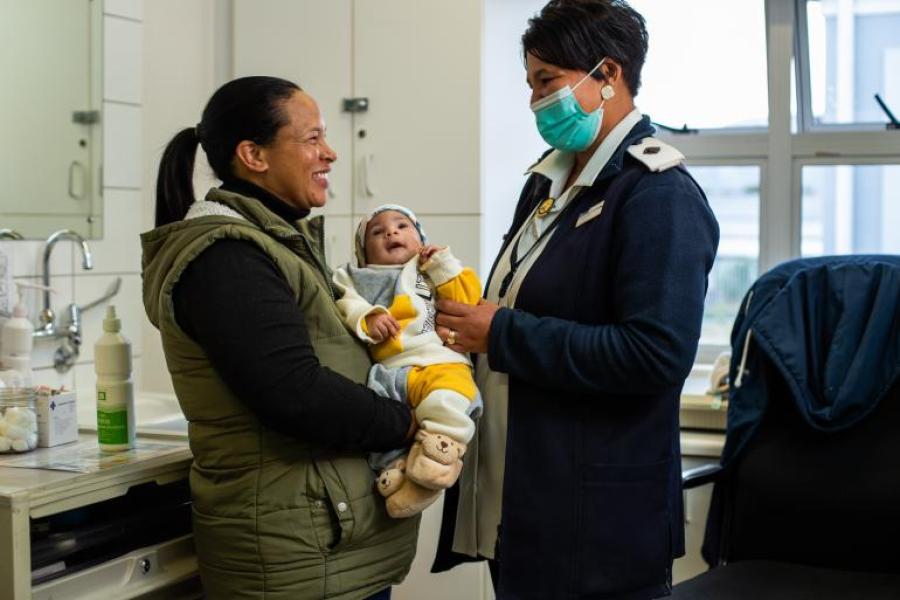Measles outbreak hits four provinces and threatens health of children across South Africa
21 December 2022

UNICEF South Africa is working with national and provincial partners to tackle the measles outbreak that has spread across North West, Mpumulanga, Limpopo and Gauteng provinces, with further cases likely as the holiday season starts.
PRETORIA, 20 December 2022 – The number of confirmed measles cases has risen to 169 across four provinces, according to the latest National Department of Heath figures. North West, Mpumulanga, Limpopo and Gauteng have reported cases and further spread is likely with the increased movement of persons during the holiday season.
Measles is a vaccine preventable disease but can be deadly, particularly for children who have missed routine childhood immunizations.
“Ensuring that children are vaccinated against measles and other preventable childhood diseases is a matter of life or death,” said Muriel Mafico, UNICEF South Africa Deputy Representative. “We call on all parents and caregivers to check the status of their children’s immunization coverage and to get up to date as quickly as possible,” added Mafico.
Most confirmed measles cases, 44 per cent, are affecting 5–9-year-olds, with some 28 per cent of cases among 1–4-year-olds and the remainder among people aged 10 to 42-years.
The outbreak has been attributed to consistent lower than optimal vaccine coverage of routine measles 1 and 2 doses, which increases the risk of being infected and of spreading the disease. COVID-19 further interrupted childhood vaccinations in South Africa but catch-up campaigns in late 2020 and 2021 helped to recover levels to near pre-COVID levels. Globally some 25 million children are missing out on life-saving vaccines every year.
As part of the outbreak response, UNICEF South Africa is working with national and provincial health authorities, as well as the National Institute for Communicable Diseases and the World Health Organization to better understand the current barriers affecting access to and uptake of childhood immunization services.
In addition, UNICEF South Africa is engaging ‘The Truck’ a multimedia messenger to travel across hotspot areas providing lifesaving information and to work with communities through health workers and other partners. UNICEF South Africa is also collaborating with partners, including UNICEF offices in neighbouring countries, to monitor and support any needed response in cross-border areas.
Frontline health and social workers, and community, faith and civil society leaders, as well as educators and early childhood development practitioners, are advised to be on high alert for anyone showing symptoms, and to report this to the nearest health facility as soon as possible.
UNICEF South Africa calls for additional national and provincial government funding to be allocated to the measles response. These resources would strengthen vaccine administration and related services, as well as risk communication and community engagement to highlight the importance of routine immunization and to provide resources on how and where to access services.
UNICEF also reiterates its thanks for the generous support provided by the Governments of Germany and Japan to support and strengthen South Africa’s vaccine cold chain, management and risk communication and community engagement work.
Notes to Editors
The National Institute for Communicable Diseases (NICD) hotline can be contacted at +27 800 212 552. Click for more information onmeasles and childhood vaccinations.



